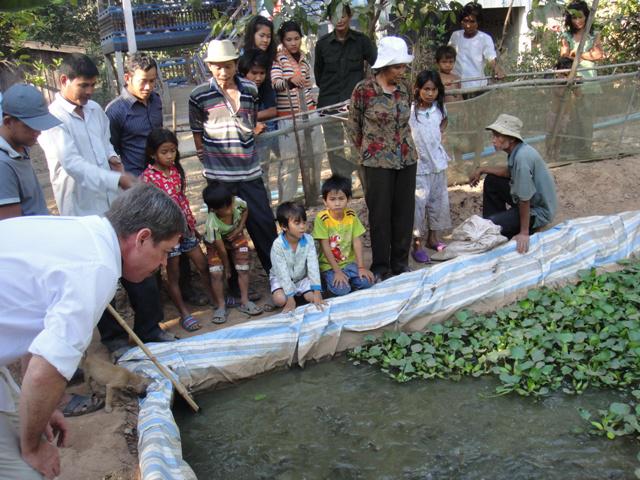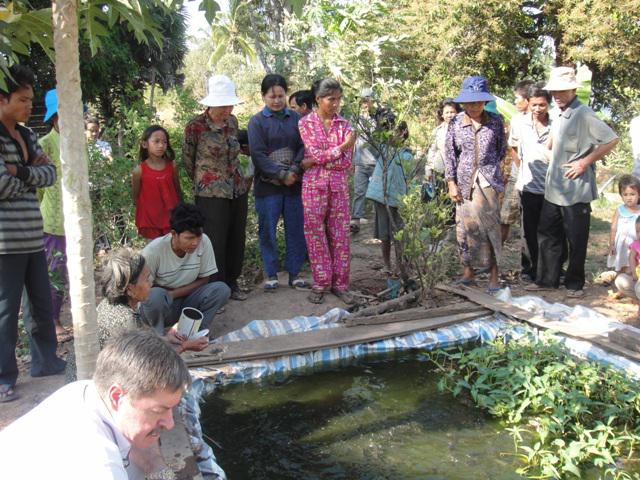Lou Vanny
Other projects
22 Mar 2011
Building Adaptive Capacities of Freshwater Fishing Community to Climate Change-Induced Changes in Water Level in Mekong River in Stung Treng Ramsar Site
The project aims to:
1. To replicate the integrated farming system of fish-vegetable production;
2. To identify climate change-induced underlying risk factors posing threats to economics and livelihoods of small-scale inland fishers.

William's Visit to fish pond of project site.
The Rufford Small Grants Foundation-funded second project is implemented in Thmey village in Samaki commune in Stung Treng province, Cambodia. This project will closely work with the Stung Treng provincial Fisheries Administration (FiA) to ensure that planned activities will be achieved at the end of this project and local community will have enough capacity to continue this practice as part of their adaptation strategy to cope with the climate change and furthermore, main risks factors affecting their livelihoods will be explored for future project intervention to sustain their living.

Visiting another fishing pond.
30 households will be invited to get involved in the training session on the integrated farming system to be provided by a provincial fisheries administration expert. Out of 30 household, 20 (15 existing beneficiaries from the first-stage project) will be selected for the project intervention at the second stage.
To ensure the sustainability of the project, a mechanism of revolving and savings fund to be managed by a representative of project beneficiaries will be established. Under this second-phase of the project, participants will be required to contribute 20 USD each at the end of harvesting season which will be used to help other interested people. In terms of replication of the project, the second-phase project will continue to support the existing 15 beneficiaries to show the more existing success to future groups and other people. Therefore, the first group of the project beneficiaries has been encouraged. Furthermore, it will increase the number of the poor and marginalised families to five more who are also interested and have asked for intervention. Starting from no sustainability mechanism in the first-step project to the establishment of revolving fund, social network and solidarity in the second-step, at least two or three more families will be helped with the revolving funds at the end of harvesting season to ensure the sustainability of the existing and new intervention.
The project is expected to enable the project beneficiaries to reduce their dependence of the collection of natural fish by 30 per cent (frequency of fishing trips) because they have alternative livelihood activities at home. After the successful implementation of this second stage of funding, local beneficiaries will feel confident to continue this system by themselves to generate more household income even though the project no longer supports them. This estimated reduction in 30 per cent of frequency of fishing trips and increase in household income by local project beneficiaries will be measured in monitoring and evaluation plan at the end of the second project in 2013 to look at the effectiveness of the project intervention.